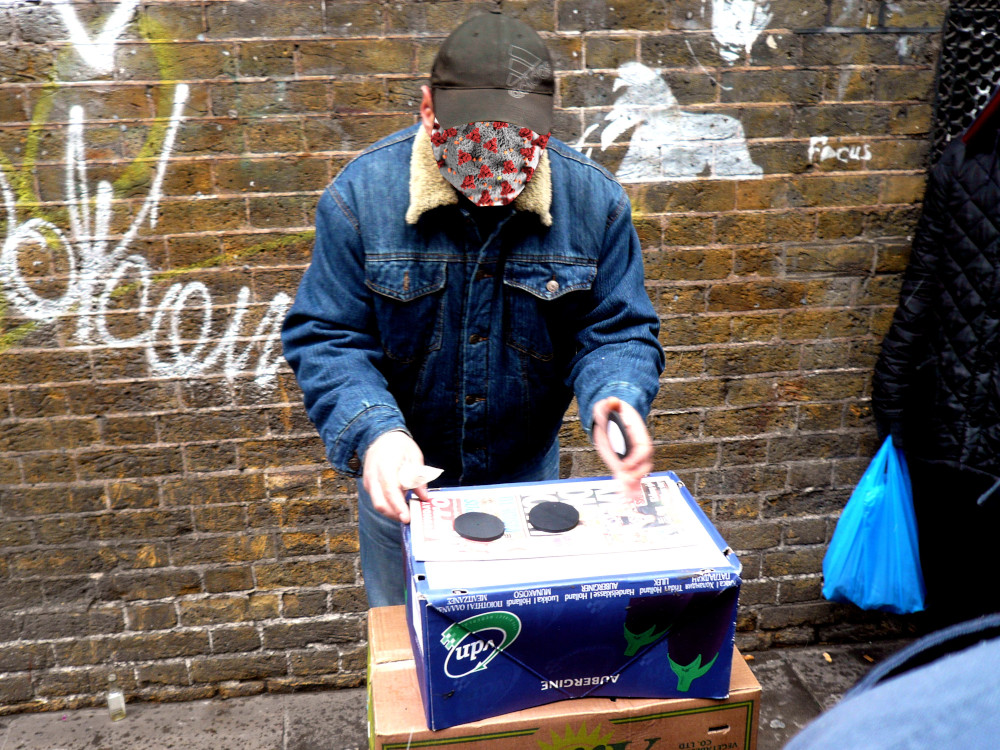
I often write about the material conditions that make people vulnerable to conspiratorial thinking, especially covid-denial, anti-masking, and vaccine refusal.
pluralistic.net/2021/08/04/eig…
1/
pluralistic.net/2021/08/04/eig…
1/

Specifically, I think it's important to go beyond the mystical explanations of "algorithmic radicalization" that assume that ad-tech companies are telling the truth when they claim that big data and machine learning can make people do anything.
onezero.medium.com/how-to-destroy…
2/
onezero.medium.com/how-to-destroy…
2/
The fact that regulators let the Sacklers tell obvious lies about opioid safety so that they could make $10+b pushing Oxy, igniting the opioid epidemic that has killed 800,000 Americans is a GOOD reason not to trust "the system."
3/
3/
Which is not to say that platforms are irrelevant to the growth of conspiracies - but that relevance is not in the automated mind-control. Rather, it's that online platforms let people find each other.
4/
4/
That's what ad-tech is, a people-finding machine, e.g., "Find me people who looked at fridge reviews to show these fridge ads to."
People-finding has a profound impact on our ideology and discourse.
5/
People-finding has a profound impact on our ideology and discourse.
5/
People with all kinds of disfavored views can locate others without risking social sanction. If you've always felt that somehow neither gender binary describes you, but lacked the words to explain it, you can use the internet to find people who have those words.
6/
6/
You can join them in community and find the strength and courage to come out.
Of course, this also applies to people who've always secretly dreamed of marching through the streets holding a torch and shouting "Jews will not replace us."
7/
Of course, this also applies to people who've always secretly dreamed of marching through the streets holding a torch and shouting "Jews will not replace us."
7/
People-finding is also important for "ideological entrepreneurs" - people hoping to spread ideas, for good or ill. An important kind of ideological entrepreneur is the con-artist - a fraudster on the grift.
8/
8/
Covid fraudsters have found it easy to locate marks, thanks to the combination of a large number of people who've been traumatized by official corruption and collusion (for example, the opioid epidemic) and the people-finding character of the internet.
9/
9/
The most successful covid disinformation is orchestrated by convicted fraudsters with histories of conning people for money - like Joseph Mercola, a Florida osteopath the @nytimes called "The Most Influential Spreader of Coronavirus Misinformation."
nytimes.com/2021/07/24/tec…
10/
nytimes.com/2021/07/24/tec…
10/
In 2017, the FTC made Mercola pay $3m to settle claims related to his fraudulent tanning bed business. Now he's got a vast online following whom he warns that vaccines will "alter your genetic coding." He advises people to buy his vitamins instead.
11/
11/
Writing for @TheAtlantic, @EBHarrington frames the bizarre about-faces from covid disinformation pushers who now espouse vaccination in the context of the sociology of con-artists.
theatlantic.com/ideas/archive/…
12/
theatlantic.com/ideas/archive/…
12/
Sociologist Erving Goffman's classic 1953 essay "On Cooling the Mark Out" describes his studies of the victims of con artists, and the way that their shame at being taken let the fraudsters revictimize them.
infofranpro.wdfiles.com/local--files/1…
13/
infofranpro.wdfiles.com/local--files/1…
13/
Victims were so embarrassed at being marks - at being convinced of "highly dubious claims - and blocking out all information to the contrary" - that they'll do anything to recover their self-image as discerning, smart people.
14/
14/
That desperation opens the mark up to being "cooled" by a confederate of the con-artist - a member in good standing of the mark's "reference group" (the network of people we all rely on) - to ensure the mark blames themselves, not the con artist.
15/
15/
The cooler helps marks rebuild their lives and social standing, and also re-frame the story of the scam so that nothing bad really happened.
16/
16/
This, Harrington says, is the right way to understand the wave of far-right pundits and grifters who now say vaccines are safe and needful, after a year and a half of social and economic profiteering through disinformation.
17/
17/
When Ron DeSantis says "the unvaccinated folks that are letting us down," he's shifting the blame from his cohort of cynical disinfo peddlers to other marks, and opening space for a mark to go and get vaccinated at last.
18/
18/
This cool-off lets the con artists skip away without consequence and can lead to more vaccinations - but for so long as your reference group continues to believe in the con, it's a tough sell.
19/
19/
That's why Missouri's Ozarks Healthcare has created a private entrance where people in disguise can come and get a quiet vaccination - they don't want their friends and family, the people they depend on, to turn on them.
20/
20/
But Harrington is optimistic: "The conservative coolers are finally on the case, and only they have a chance of transforming partisan vaccine refusers into vaccine adopters."
21/
21/
Beyond that, Harrington urges us to adopt a sociological framework for understanding what's going on with vaccine refusal - not a matter of individuals making bad choices, but as a community-level phenomenon.
eof/
eof/
ETA - If you'd like an unrolled version of this thread to read or share, here's a link to it on pluralistic.net, my surveillance-free, ad-free, tracker-free blog:
pluralistic.net/2021/08/05/com…
pluralistic.net/2021/08/05/com…
• • •
Missing some Tweet in this thread? You can try to
force a refresh








